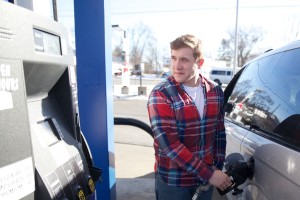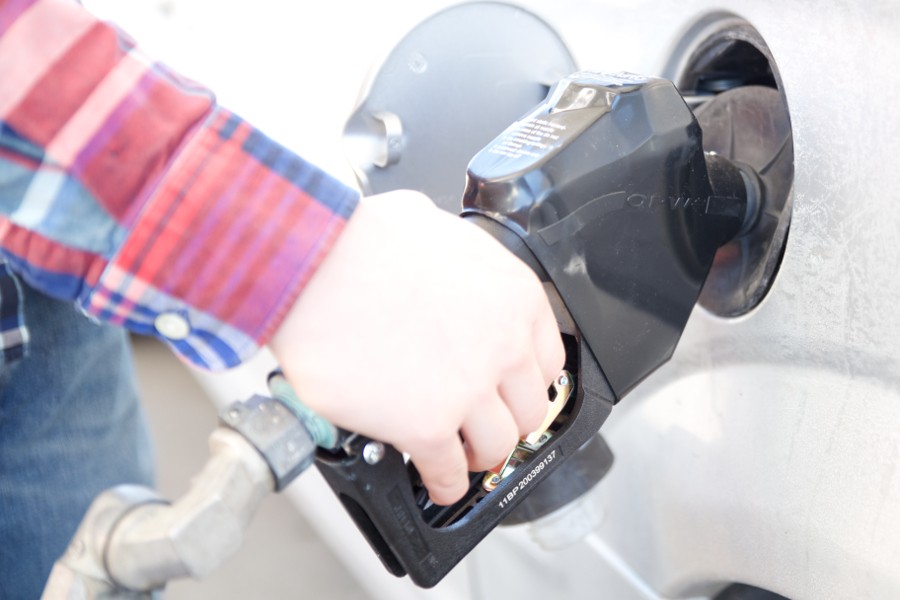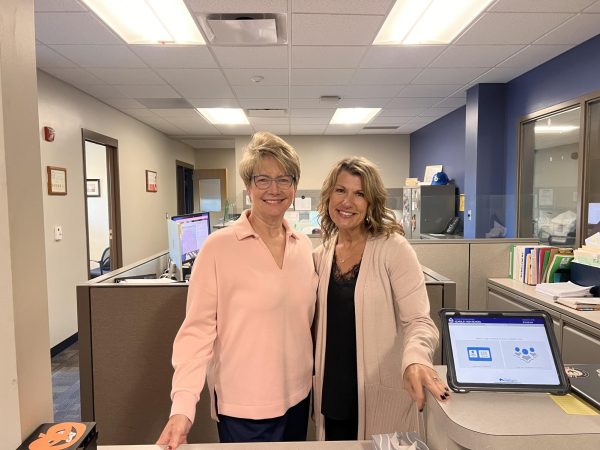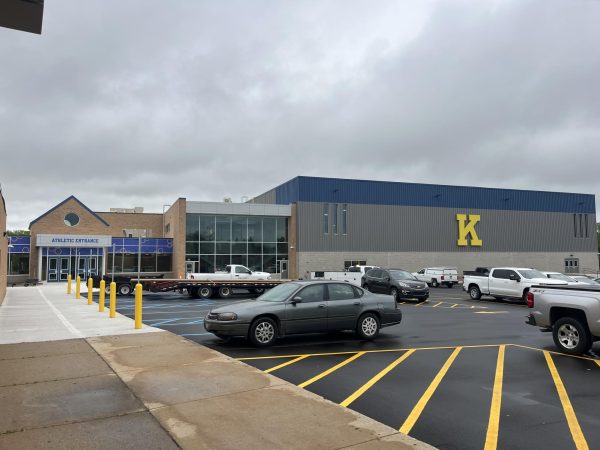Petrol price plunge affects economy, traffic crash rates
IMAGE / Dylan Brewer
Like the three celestial objects aligning to create a lunar eclipse, factors in the gasoline market have aligned to produce a historic event.
Increased oil supply, falling crude oil prices, and the lack of natural disasters produced a record price plunge that has lasted nearly 120 days.
The price of regular gas in Flint has fallen over $1.35 since this time last year, according to AAA.
So what does this mean for high school students?
Students like senior Jacob Murray see this decrease as an appreciated economic relief.
“It gives you extra money,” Murray said. “It’s nice.”
Gas is considered an inelastic good. This means that, regardless of price, consumer demand remains relatively constant. In today’s society, simply refusing to drive is often not a viable option.
Murray said that he still had to drive when prices were high.
“You still have to go to work or to school,” Murray said.
Fortunately for students like Murray, AAA predicts that gas will remain under $3 a gallon throughout 2015.
The lower price of gas coupled with its inelasticity means drivers across the country are expected to have an extra $452 at the end of 2015.

Jacob Murray, senior, pumps gas at the Marathon on Genesee and Richfield roads where gas is five cents cheaper if cash is used as payment. Murray was happy about how slowly the price increased on the pump’s display.
Murray said this extra money is like a tax break.
“It’s stimulating the economy. People have more money, so they spend more money,” Murray said.
Consumers and the media alike have drawn attention to the positive effects of the situation.
However, falling gas prices have recently attracted some critics as well.
A recent study in the Journal of Transport Geography conducted by Dr. Guangquing Chi, associate professor and director of Rural Life and State Census Data Center, and three other researchers, looked at the correlation between gas prices and traffic crashes in Mississippi.
The study found that when gas prices increased, traffic crash rates decreased.
Drivers between the ages of 15 and 23 – high-school-aged students – showed the strongest correlation in this trend.
“The younger population tends to have lower income than the older population and thus is more vulnerable to gasoline price increases,” the study said.
Essentially, high school students have the strongest reaction to the change in gas prices because gas expenses make up a large portion of their budgets.
According to the journal, the “risk-seeking younger generation” accounts for 25 percent of all crashes, so, naturally, crash rates go down when they drive less.
The study also broke down the results by gender.
The crash rates of men showed nearly no change with gas price fluctuations.
“Because work-related trips are less easily changed, the number and frequency of men’s trips are much less immediately affected by gasoline price changes,” the study said.
However, crash rates among women did show a decrease.
The study concluded that women tend to make many shorter trips.
“In response to gasoline price increases, women could change frequent short-distance trips to less frequent multi-purpose trips,” the study said.
It is important to note, however, that the fatal crash rates across the board remained about the same.
The study said, “Gasoline prices have stronger effects on less severe crashes but weaker effects on more severe crashes.”
But why does this correlation appear?
One theory is that higher gas prices lead to less driving, and less driving leads to fewer traffic crashes.
The study suggested some people seek alternative methods of transportation and consolidate trips to reduce the amount of money they spend on gas.
Another possible cause is that people drive differently when gas prices are high.
The study proposed that people may drive in “a more fuel-efficient manner.”
Senior Elijah Madar agreed with this logic when gas prices go up.
“People drive more carefully,” Madar said. “They don’t want to use as much gas (in order) to save money.”
Although falling gas prices boast economic advantages, the unforeseen consequences are something to be taken seriously.
Falling fuel prices may leave consumers with more money to spend at the end of the day, but the study said that “higher gasoline prices lead to higher levels of traffic safety.”

Class: Senior
Clubs: National Honor Society, Future Problem Solving, Robotics, Mathletics
Athletics: Tennis
Hobbies:Technology, Politics, Religion,...











